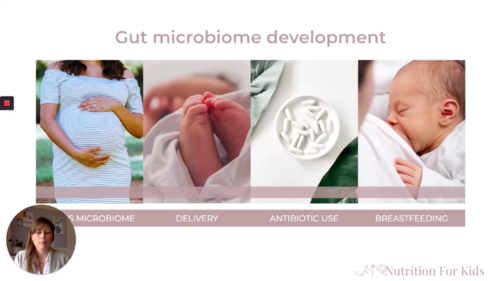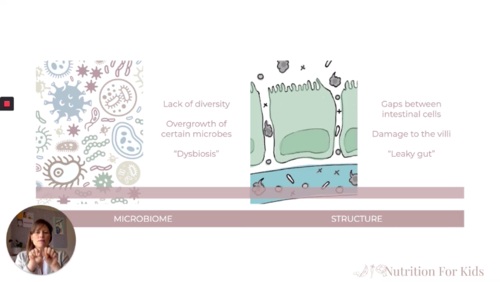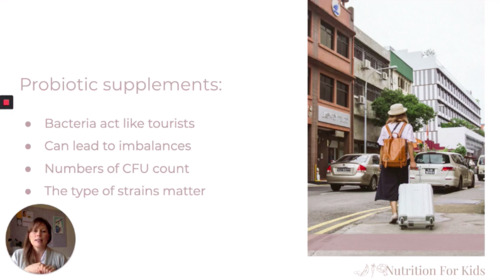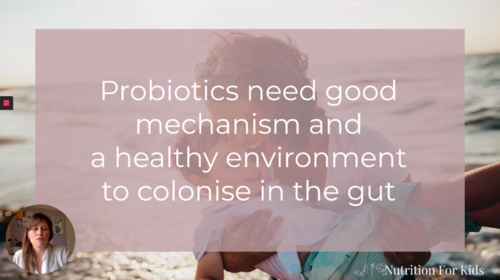Introducing eggs to your baby
With food allergies on the rise, new parents are often hesitant of introducing eggs to their baby as a first food.
In this post, I answer common questions about egg allergy and giving your baby eggs when you are ready to start the journey of solid food.
When can I introduce my baby to eggs?
Eggs are considered as one of the high allergenic foods alongside cow's milk, peanuts, sesame, tree nuts, fish, shellfish, soy and wheat. Previously, many people held off introducing these foods early in fear of allergic reactions.
However, the feeding guidelines for introducing babies to allergenic foods have changed. It is now recommended you introduce these allergenic foods, including egg, by 12 months of age alongside their other solid foods. Research has found that early introduction of these foods may reduce the change of your baby developing a food allergy. This includes foods like peanut butter, scrambled eggs and dairy products.
An Australian study has found infants fed egg after 12 months of age are up to five times more likely to develop food allergies compared to those babies were given egg at four-six months of age. The results were dependant on how the egg was cooked.
We have a family history of food allergies, is it still safe?
The current feeding guidelines for infants and allergenic foods are relevant to families even if there is a history of food allergies. While babies with parents or siblings who have food allergies or allergic conditions are considered higher risk, the recommendation to introduce the high allergenic foods in their first year remains.
For baby's with an existing allergic disease, such as a food allergy or eczema, you should discuss the introduction to these foods with your paediatrician or trusted health practitioner.
How do I introduce eggs into my baby's diet?
It is best to first introduce your baby to well-cooked whole egg. It is believed the egg allergen is destroyed by cooking making it a much safer first food than partially cooked or raw eggs. This also reduces the risk of Salmonella poisoning. There is no need to now separate the egg yolk and egg white.
Scrambled eggs and well-cooked hardboiled egg mash is a great way to introduce egg as one of your baby's first new foods.
Some of my favourite ways to introduce eggs in your baby's diet are:
Cut hardboiled eggs
Mashed eggs with avocado
An omelette with pureed veggies
Scrambled eggs with banana
Crumbled on top of their baby food
DISCOVER the state of your child’s gut health
Take the Kids Gut Health Check-up quiz today to see how you can best support your child's health by healing and nourishing the gut.
Take the Kids Gut Health Quiz now.
Can my baby have runny eggs?
It is not recommended to give babies undercooked or raw egg, including foods such as mayonnaise that contain raw egg.
What are the signs of an allergenic reaction?
There are several signs that can indicate your baby has had an allergenic reaction to the egg with most reactions occurring very quickly or within two hours of consumption.
Some signs to look out for are swelling or redness around the mouth, sneezing, runny nose, hives or a flare-up of skin conditions such as eczema. Other not so immediate or obvious reactions may be tummy pain.
The most severe and life-threatening reaction is anaphylaxis.
My child has an egg allergy, will they grow out of it?
The good news is that the majority of infants with an egg allergy will grow out of it. If your child has a shellfish, tree nut or peanut allergy, they are less likely to outgrow it with most of these allergies tending to be lifelong.
If you need individual advice about introducing your baby to solid foods or allergenic food management, take up the opportunity for a free 15 minute Wellness Discovery call. You can book and find more information about our nutrition consultation services here.
Want to learn more about kids gut health?
The Kids Gut Health Webinar provides you with an introduction to the gut microbiome.
Over 49 minutes, nutritionist Sarah Appleford discusses what gut health actually means, the gut microbiome and what occurs in an unhealthy gut.
Watch the Kids Gut Health Webinar here.
References
Allen, K. J., Hill, D. J., & Heine, R. G. (2006). 4. Food allergy in childhood. The Medical Journal of Australia, 185 (7), 394–400. https://doi.org/10.5694/J.1326-5377.2006.TB00618.X
ASCIA (2016) Infant feeding and allergy prevention. Available at: https://www.allergy.org.au/images/pcc/ASCIA_Guidelines_infant_feeding_and_allergy_prevention.pdf (Accessed: 17 October 2019).
Caubet, J.-C. and Wang, J. (2011) ‘Current understanding of egg allergy.’, Pediatric clinics of North America. NIH Public Access, 58(2), pp. 427–43, xi. doi: 10.1016/j.pcl.2011.02.014.
Palmer, D. J. et al. (2013) ‘Early regular egg exposure in infants with eczema: A randomized controlled trial’, Journal of Allergy and Clinical Immunology. Mosby, 132(2), pp. 387-392.e1. doi: 10.1016/J.JACI.2013.05.002.
Wei-Liang Tan, J. et al. (2017) ‘A randomized trial of egg introduction from 4 months of age in infants at risk for egg allergy’, Journal of Allergy and Clinical Immunology. Mosby, 139(5), pp. 1621-1628.e8. doi: 10.1016/J.JACI.2016.08.035.







